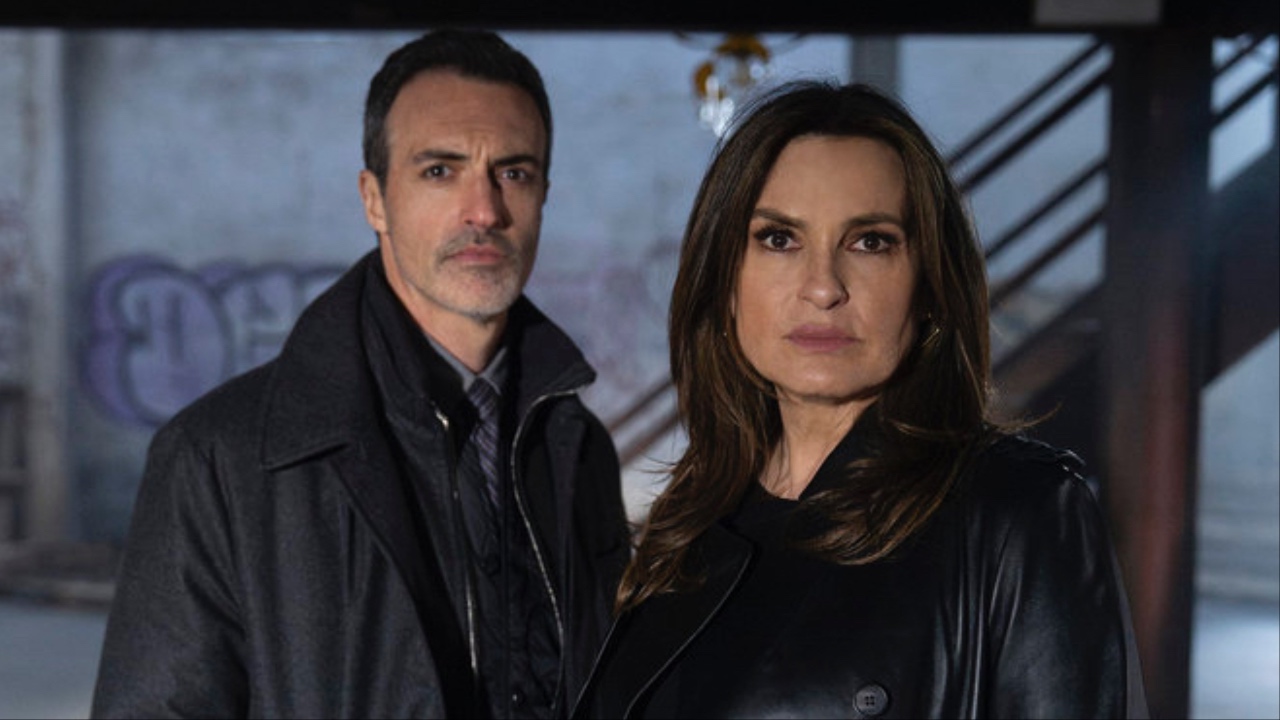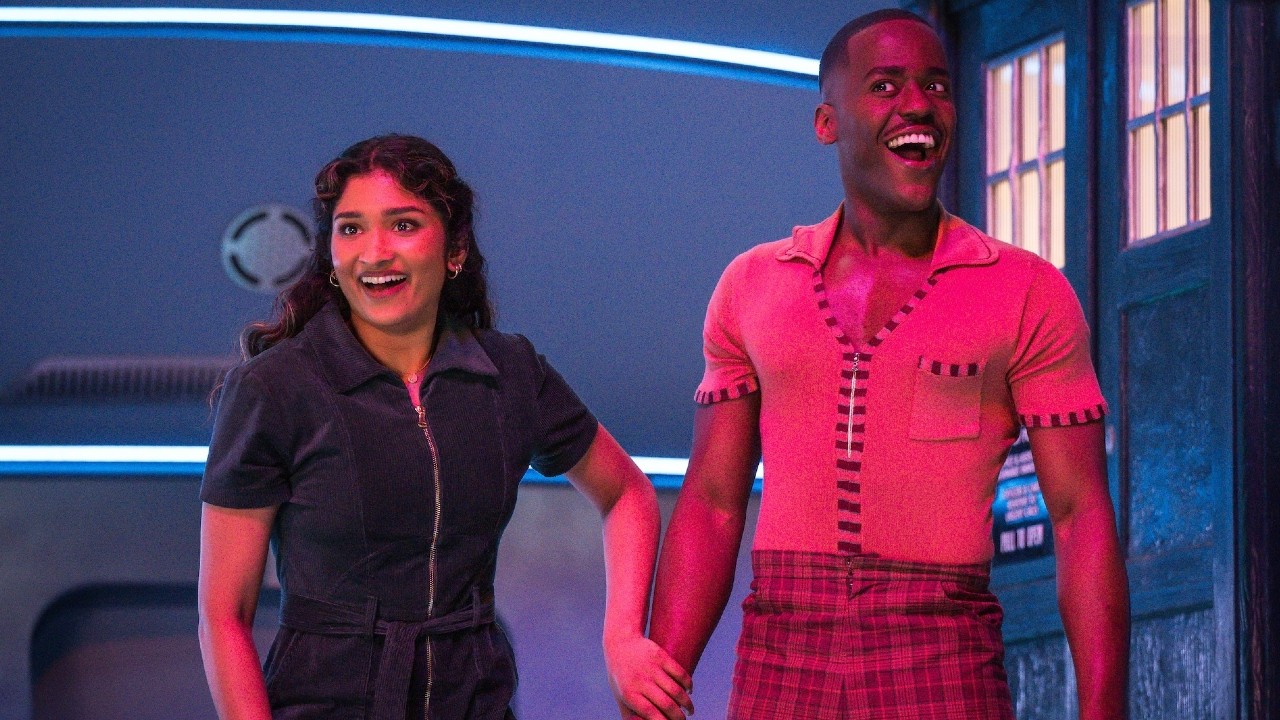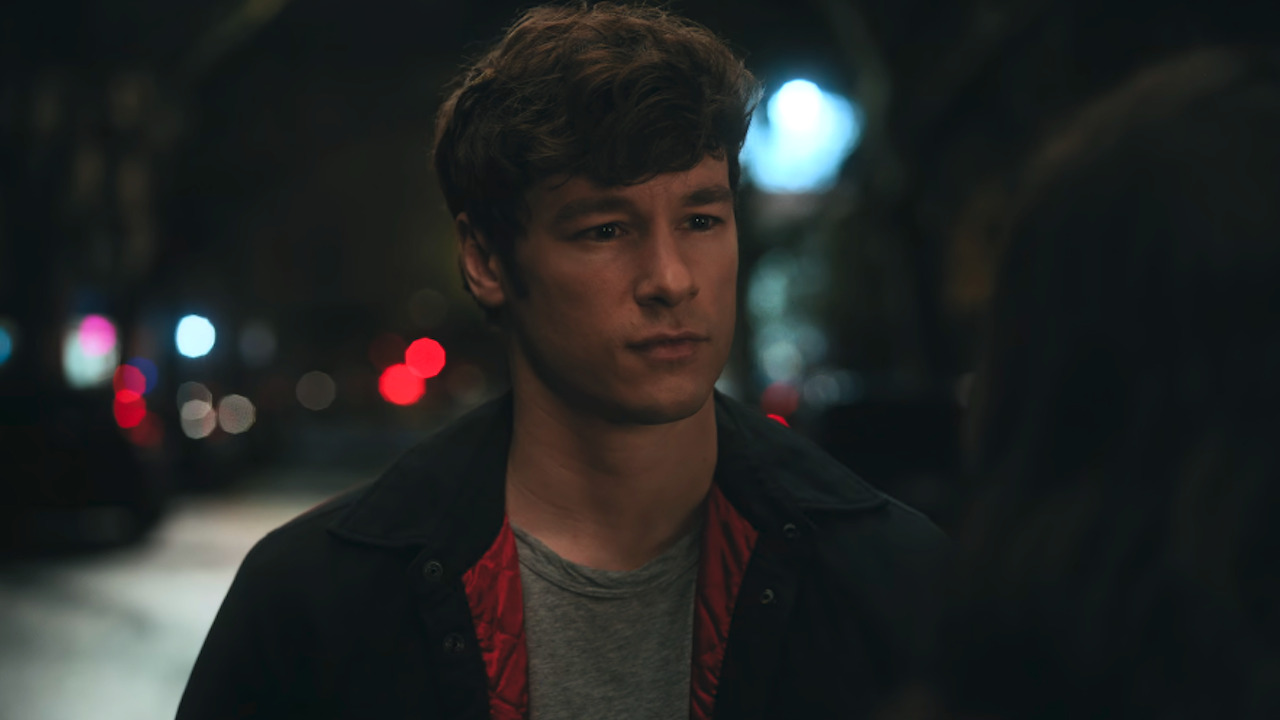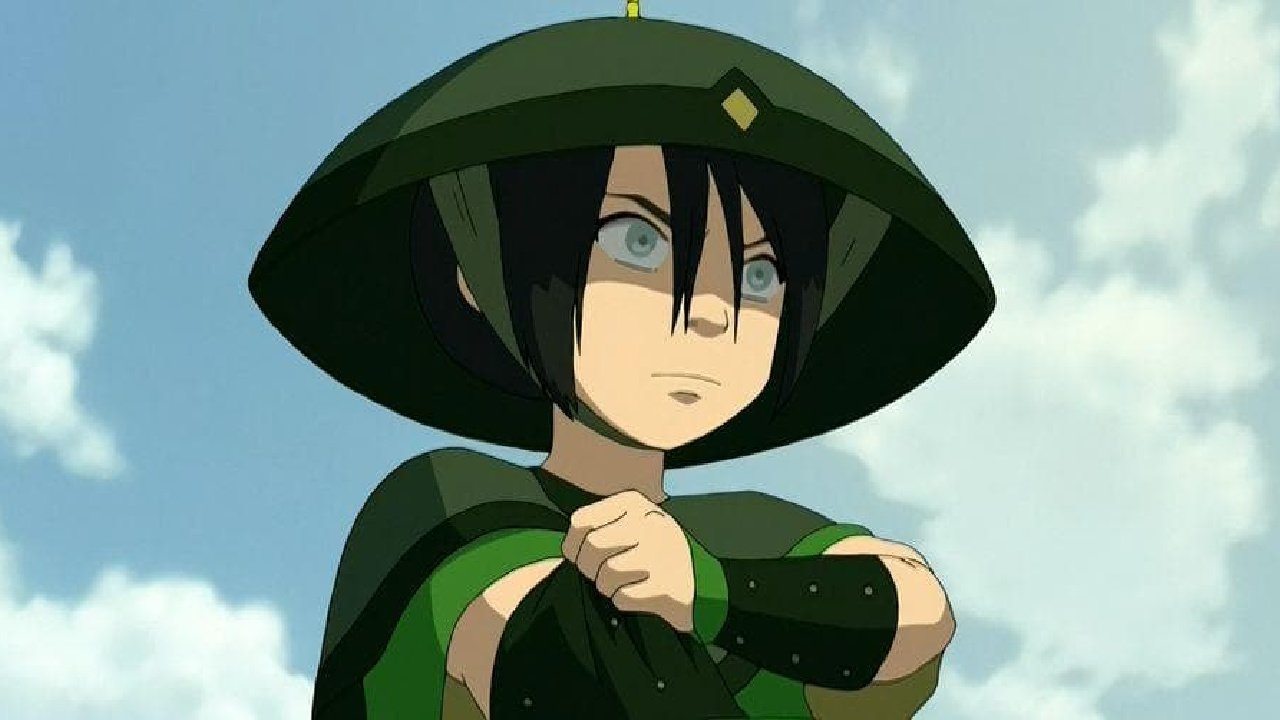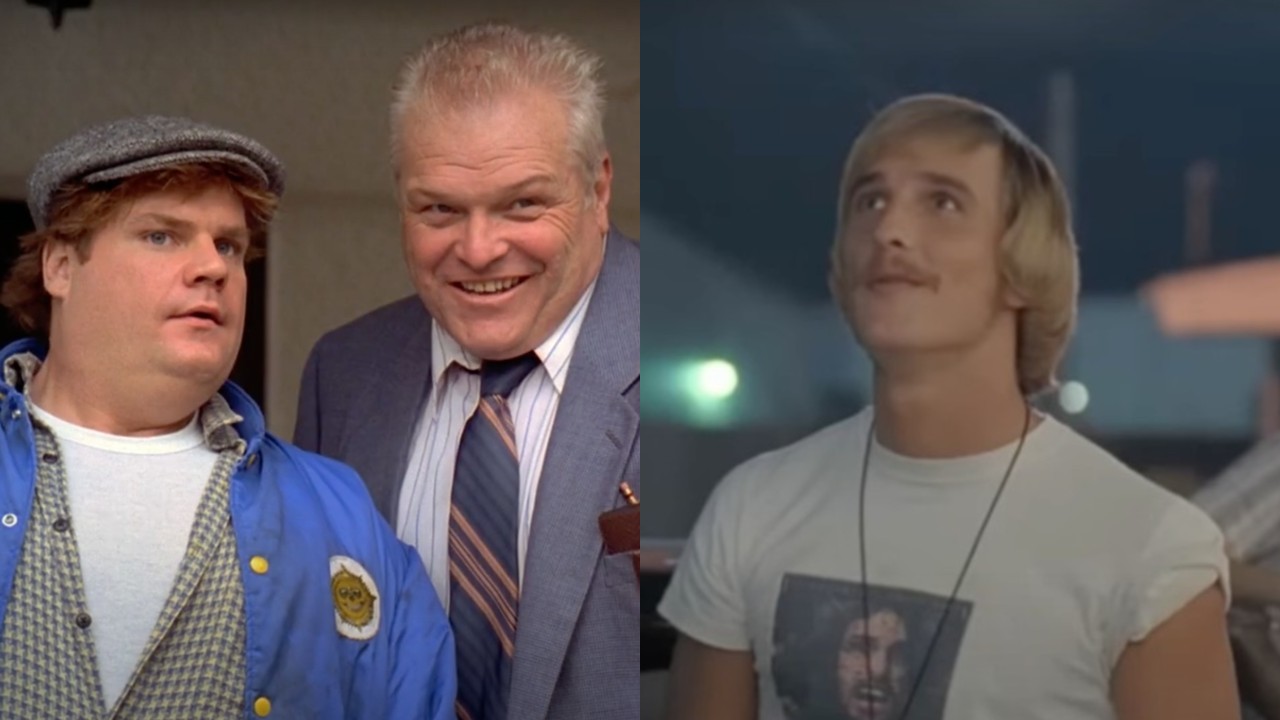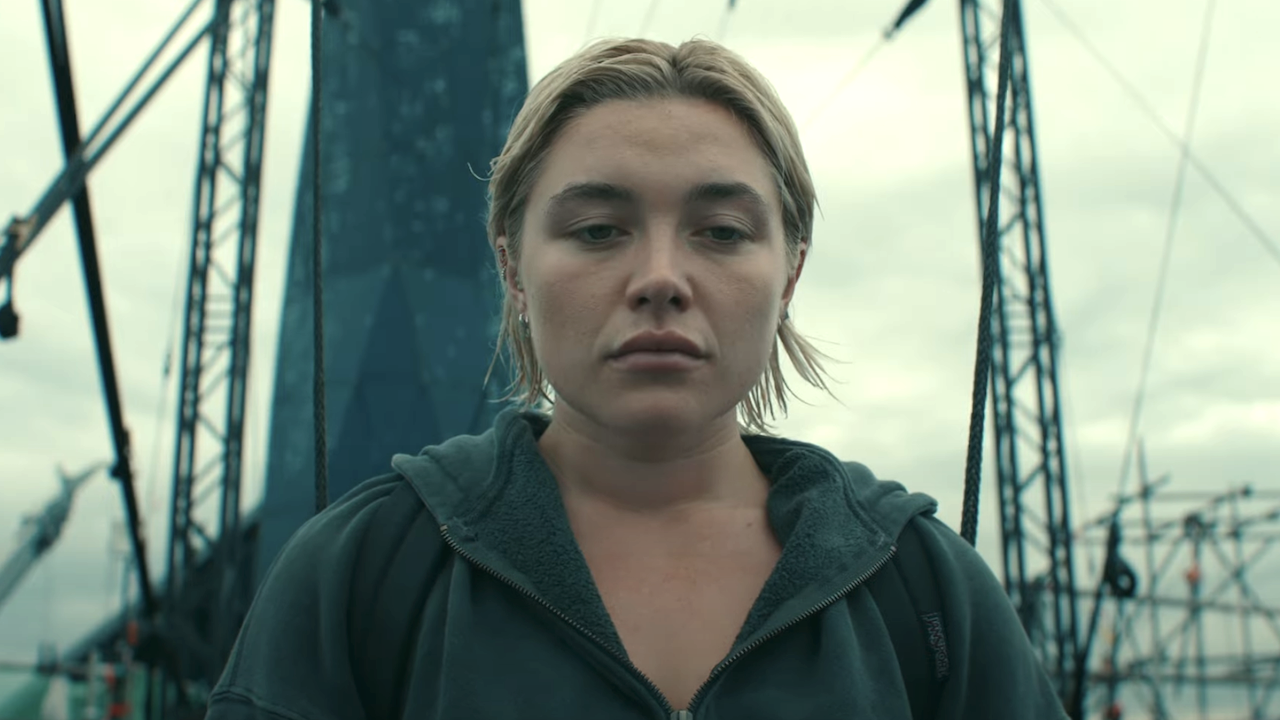Alcatraz Series Premiere Watch: Episodes 1 And 2 - Pilot, Ernest Cobb
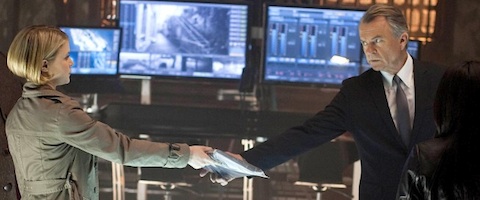
Strangely, the idea of escaping from Alcatraz is a romantic notion to many people. We love it when someone conquers the impossible, even if that someone only has a chance to conquer the impossible because he was guilty of being a bank robbing murderer. It showcases those time-honored American values of determination, cunning, and sticking it to the man. But what if 256 prisoners, and 46 guards, escaped due to a mysterious, simultaneous disappearance on March 21, 1963? You'd probably think they were a bunch of lazy sods who didn't understand a hard day's work. Speaking of, FOX presents: Alcatraz. And I present a jumbled recap thereof.
Here we have an interesting, if somewhat sterile, mash-up of a thousand other shows. But how about that hook, people? Missing prisoners popping back up in present times? Sam Neill is rounding them up? (Is he smiling? For God’s sake, I can't tell if he's smiling!) Judging from this initial two-hour block, each episode may have a fairly procedural "find the prisoner" vibe, tying everything into the central mystery of What Actually Happened. About a quarter of the narrative takes place from 1960-63, where the prisoner/guard stories unravel. Sam Neill’s Emerson Hauser runs an underground task force dedicated to re-capturing these prisoners, and everything is cloaked in conspiracy. It’s a wonder my television didn’t explode from gimmick overload. Overall, it was an enjoyable viewing experience, but one that lacked a noticeable amount of fun. A show can be serious without taking itself too seriously, but that’s not evident here.
The Past
Chief Warden Edwin James (Jonny Coyne) is a tough sumbitch running a tight sumbitching ship, along with Associate Warden E.B. Tiller (Jason Butler Harner). Tiller is especially hard on newbie Jack Sylvane (Jeffrey Pierce), Prisoner 2024, a WWII vet arrested for robbing a store that sold postage stamps, thus making it a federal crime. He’s not a violent guy, though he is enraged when his wife Sylvia uses her visitation time to end things, before eventually marrying his brother Alan. Tiller holes Jack in solitary for extended periods and takes a large amount of blood from him. While in the infirmary, Jack is given an ominous message of terrible things to come by a mystery man, Prisoner 2002.
The Present
Jack wakes up in his old cell wearing a fashionable coat that contains his tour ticket, a wad of cash, and a key. (Seemed like a proper spot for product placement.) Shocked, but not in a hysterically screamy way, Jack walks around and looks through a book about Alcatraz, written by Dr. Diego Soto (Jorge Garcia). He finds his own picture, along with one of Tiller, who eventually attained top honors from the FBI. Those honors didn’t make Tiller’s stomach stab-proof however, and his bloody murder brings in the show’s good guys.
Detective Rebecca Madsen (Sarah Jones) is still dealing with the months-old death of her partner, seen in a nifty criminal-chase sequence. She briefly investigates Tiller’s murder until Emerson pulls rank. She manages to nab a photo of Tiller and James, the same from Jack’s book, from the scene. And she finds his fingerprint on it! Wait, so either before or after stabbing Tiller, Jack removed a picture he’s already seen before from its frame before putting it back inside and then smashing it? Three Google searches later, where she discovers Jack reportedly died in 1976, Rebecca recruits resident expert Diego Soto, the show’s lone source of humor, to help her investigation.
CINEMABLEND NEWSLETTER
Your Daily Blend of Entertainment News
Good thing, too, because Diego stumbled upon a room full of secret files and prisoner effects and shit on his last visit to the island. Luckily, they just have to cross a single chain to take their secluded walk to the room. While inside, they’re gassed, waking up in Hauser’s underground lab-thing, where they meet his right hand woman Lucy (Parminder Nagra). Diego calls it the Bat Cave, which is a decent enough comparison. They’ve been waiting a long time down there for the prisoners to start coming back.
Everybody predictably joins forces, and the rest of the show becomes a cat and mouse chase to get Jack, who weaves a bloody path through town, beating up a locker room attendant, killing some cops, and shooting another man to access to a large key. It all comes to a close at the graveyard where Sylvia, taken by cancer four years previous, is buried, with Jack having forced Alan to take him there. Hauser takes Jack to a nondescript building in the middle of the woods, which turns out to be a new cell block dedicated solely to the missing prisoners.
That was just the first hour. (Pant, pant.) I have no direct negative criticism for the plotline itself. But I’m tired of shows combining a smart person with a cop to create a tag team that has no bearing on anything legally plausible. Hauser has a big room with pictures of all the prisoners and guards hanging on the walls, a staple of any show with a cover-up involved. The clichés are present and obvious throughout, but I guess I expected that. There were a few surprises that as yet don’t hold much depth, as when we find out Hauser was one of the two guards that discovered the island was empty, and when Rebecca finds out her grandfather wasn’t a prison guard as she’d thought, but was Prisoner 2002, from the infirmary. He was also the guy she was chasing when her partner died. Cool, but I need it to be more than just a clever coincidence.
Ernest Cobb
The second hour is less dense, sticking mainly to titular Cobb, a sharpshooting foster child with seemingly random murder patterns. Once arrested, he pissed off the right people to get himself into Alcatraz, hoping to secure a private cell, where he could serve his sentence in peace. Noises and useless conversation bother him immensely, which is fully realized when put in a cell next to a nerve-grating piece of human aggravation. He appeals to the warden to be transferred to solitary, but is denied. He eventually finds a loophole where he refuses to stand for roll call, and then gets the peace he’s looking for. That is, until the vengeful warden sticks the annoying prisoner in there with him.
He appears in present day, and wastes no time getting back to old habits, which include shooting crows as well as people, all while repeating “47 slats on a picket fence,” and then a series of numbers as he shifts the crosshairs from one person to the next. He picks off a trio of people enjoying themselves at a carnival. Later, he sets up near a mall with the same results. (Watching two teenagers get shot in the chest on a Ferris wheel was disturbing. Watching it again in slow motion was in bad taste. Even for me, and I only know bad taste.) Through the usual police methods, including a brief visit to a specialty gun shop, Rebecca figures out it’s Cobb doing it, tracking him to a hotel. Rebecca, Diego, and Lucy go to the room and find it’s empty. Lucy stands before a window that reads, “I can see you,” and is then shot in the chest by Cobb, who was waiting in the building across the street. She survives, but is in a coma.
Some of the episode just has people asking jack if he knows anything, which he doesn’t. So it’s back to good old detective gut instincts. Diego finds a note from Cobb’s blood sister, Eloise, that mentions how Cobb was shunned by his mother after he finally found her, and that she wanted to get to know him. Cobb never read this letter, so this is, of course, why a teenage girl is always one of his victims, because he’s taking his frustrations out on girls that remind him of Eloise. Why was she loved and not him? I dunno, maybe she didn’t harbor murderous urges.
Rebecca, who feels terrible about getting another person hurt, homesteads in Cobb’s old cell, where she puts together a makeshift scope, made from a cut up magazine and lenses. She stares out of the cell, realizing that this is probably all Cobb did with his time. From this, she extrapolates that he must be using one of two buildings with vantage points that could be seen from Cobb’s cell. Sure enough, they track him to it, and use the knowledge of the letter to distract him long enough to take him down. Great moment when Hauser shoots Cobb in his shooting hand. Cobb is then put in his own cell near Jack. The two share a look. There’s history there.
This episode’s surprise ending comes in a flashback where the warden sets Cobb up with a doctor to get inside his head to diagnose his illness. This doctor… was Lucy, looking exactly the same. So it appeared her attempted murder was intentional after all.
I quite enjoyed the time taken to show Cobb’s pathology without really explaining it. It was all too clean and clutter-free, of course, but I applaud the effort. Less enjoyable was Cobb’s introduction, where he off-handedly gave the warden sharpshooting advice (“Drop your shoulder”) that immediately proved useful to him as he shot cans with a rifle. Corny. When Diego has completely realistic problems being around teenage corpses, Rebecca waves them away with a smarmy half-speech about how she needs him. Corny.
If it can drop this faux sincerity and realize that a little camp never hurt anybody, Alcatraz could become a genuine pleasure, instead of what will probably become a guiltier one. I guess we have another 254 prisoners to judge things properly.

Nick is a Cajun Country native and an Assistant Managing Editor with a focus on TV and features. His humble origin story with CinemaBlend began all the way back in the pre-streaming era, circa 2009, as a freelancing DVD reviewer and TV recapper. Nick leapfrogged over to the small screen to cover more and more television news and interviews, eventually taking over the section for the current era and covering topics like Yellowstone, The Walking Dead and horror. Born in Louisiana and currently living in Texas — Who Dat Nation over America’s Team all day, all night — Nick spent several years in the hospitality industry, and also worked as a 911 operator. If you ever happened to hear his music or read his comics/short stories, you have his sympathy.


